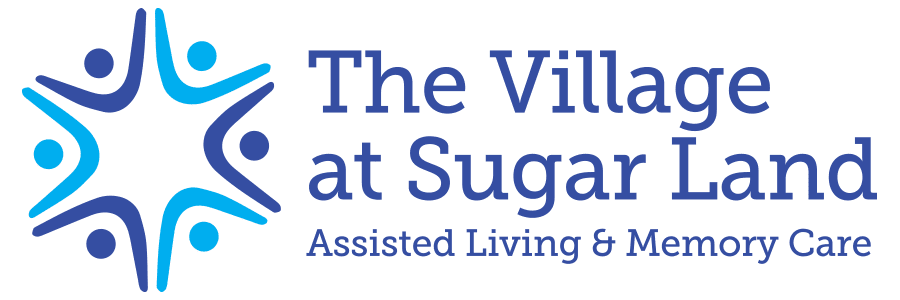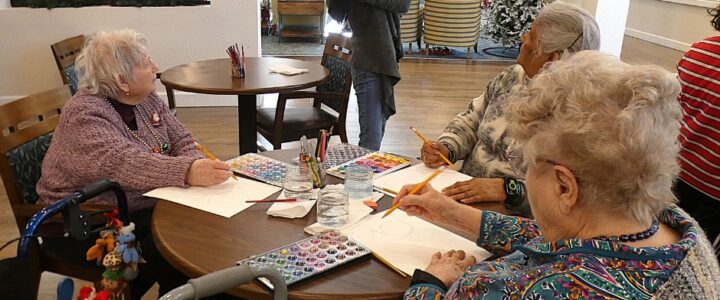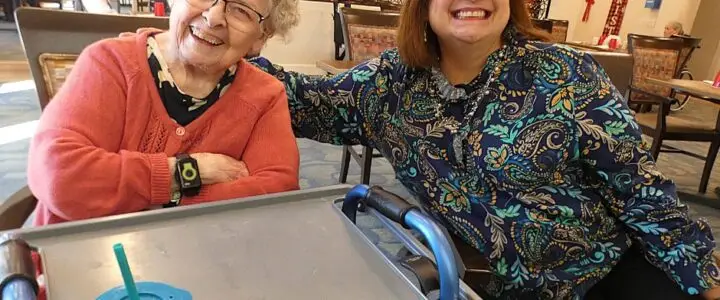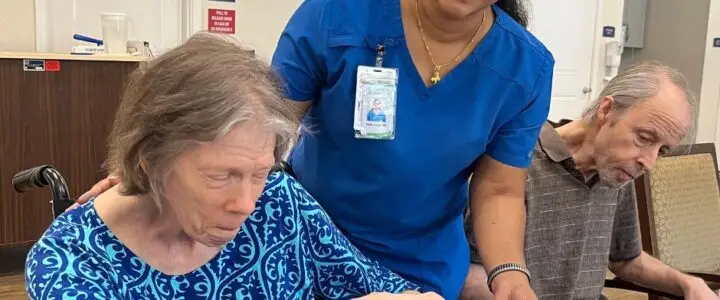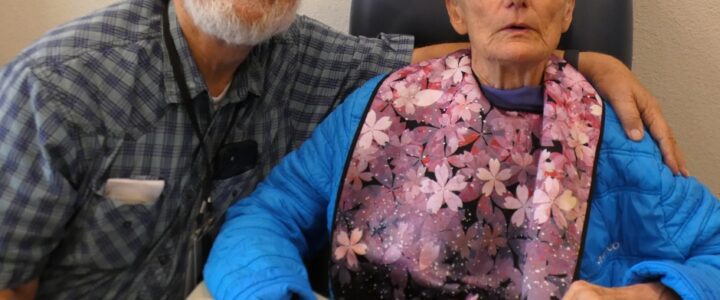TL;DR:
- Assisted living supports seniors who are mostly independent but need help with daily tasks like dressing, bathing, and medication.
- Memory care is specialized for those with Alzheimer’s or dementia, offering secure environments, routine structure, and cognitive-focused care.
- Memory care staff receive extra training to address behavioral and emotional needs related to memory loss.
- The core difference is in the level of supervision and structure—assisted living fosters independence, while memory care ensures safety and consistency.
- The Village at Sugar Land offers both options, providing personalized care and peace of mind for families.
Understanding the difference between assisted living and memory care is essential. This is especially true if your loved one is experiencing memory loss or cognitive decline.
At The Village at Sugar Land, we know that every resident’s journey is unique. Choosing the right level of support can make all the difference in their comfort, safety, and quality of life. Assisted living offers a helping hand with daily activities, ideal for seniors who value independence but need occasional support.
However, for those living with dementia, memory care provides a secure environment with specialized attention and structured routines. Some families may consider assisted living for dementia, but memory care may be a better fit. Our compassionate team is here to help you navigate these choices and find the best fit for your loved one’s well-being.
What is Assisted Living?
Assisted living is for older adults who value their independence but may need a little extra support. At The Village at Sugar Land, our assisted living community offers just the right balance of freedom and help. We empower residents to live life on their own terms while providing peace of mind for families.
Residents in assisted living typically enjoy private apartments and a vibrant community setting. There, they can participate in activities, dine with friends, and receive personalized care as needed. Support often includes help with bathing, dressing, medication management, and housekeeping—all delivered with dignity and respect. Our trained caregivers are available 24/7, ready to lend a hand while encouraging as much independence as possible.
This option is ideal for seniors who don’t feel safe living alone but don’t have serious medical conditions. Some families consider assisted living for Alzheimer’s patients. However, standard assisted living may not always provide the structure or security needed for individuals with dementia.
At The Village, we tailor care to the individual, creating a nurturing environment. Here, residents feel safe and at home. Our assisted living community focuses on wellness, social engagement, and compassionate care. This is often the perfect solution for those seeking both independence and reassurance in their daily lives.
What is Memory Care?
Memory care is a specialized form of senior living for those with Alzheimer’s, dementia, or other cognitive decline. It shares some similarities with assisted living, like help with daily activities and access to engaging programs. However, the level of care, security, and structure is more intensive and specifically tailored to cognitive needs.
At The Village at Sugar Land, we thoughtfully design our memory care unit to provide a safe, nurturing environment. At The Rivers Care Unit, residents can thrive. From secure spaces that minimize confusion to daily routines that create comfort, every detail supports those with memory loss.
Our trained caregivers use a compassionate, person-centered approach. We help residents maintain dignity, purpose, and as much independence as possible.
When comparing assisted living vs memory care, the key difference lies in the depth of support and skill. Assisted living is great for those who need help with everyday tasks. However, memory care is better suited for those who require consistent supervision, cognitive support, and a structured routine.
Understanding memory care vs assisted living is essential for families deciding the best next step for a loved one. Memory care focuses not only on safety and health but also on emotional well-being. Memory care communities offer activities that stimulate memory, promote connection, and celebrate each resident’s life story.
Our memory care team is here to walk with your family through every stage. We offer peace of mind and a heartfelt commitment to compassionate care.

Key Differences Between Assisted Living and Memory Care
Both assisted living and memory care offer supportive environments for seniors. However, the level of care and the daily experience are quite different. Understanding the difference between assisted living and memory care is key to giving your loved one the best care.
Assisted living provides a more independent lifestyle with just the right amount of help for daily activities. This might include things like dressing, bathing, or medication reminders. This is a great option for seniors who are mostly independent but could use a little support to live more comfortably.
Memory care, on the other hand, is specially for individuals living with Alzheimer’s or dementia. These communities offer higher levels of supervision, secure layouts to prevent wandering, and structured routines. This encourages comfort and reduces anxiety.
Caregivers in memory care settings also receive additional training. This helps them respond to the unique behavioral and emotional needs of residents with memory loss.
When discussing assisted living vs memory care, consider staff training, safety features, and the types of activities offered. Memory care focuses on cognitive stimulation, therapeutic programs, and personalized approaches that support each resident’s abilities and history.
Choosing between these two care types isn’t always easy. However, understanding the distinctions helps families make confident, informed decisions. At The Village at Sugar Land, we’re here to guide you every step of the way. We’ll help you find the perfect environment for your loved one’s well-being and peace of mind.
Making the Right Choice for Your Loved One
Choosing between assisted living and memory care is a deeply personal decision. This choice depends on your loved one’s health, needs, and lifestyle preferences. Understanding the difference between assisted living and memory care is the first step.
Assisted living provides supportive help with everyday tasks while encouraging independence. This is ideal for seniors who are still active but need a little assistance. Memory care, however, offers a higher level of specialized care for individuals with Alzheimer’s or dementia. It focuses on safety, structure, and cognitive well-being.
At The Village at Sugar Land, we offer both levels of care within a warm, welcoming community designed to feel like home. Our assisted living residents enjoy vibrant social calendars, private apartments, and personalized daily support.
For families seeking assisted living for Alzheimer’s patients, we also offer dedicated memory care neighborhoods. Our Rivers Care Unit is complete with security, calming routines, and specially trained staff who understand memory loss.
Still wondering what the difference is between memory care vs assisted living? Think of it as a difference in both focus and environment. Assisted living promotes independence with support; memory care provides enhanced supervision with compassion.
No matter where your loved one is on their journey, The Village at Sugar Land is here to help. Our goal is to create a life of comfort, dignity, and joy—one that gives your family confidence and peace of mind. We invite you to visit, ask questions, and let us walk beside you as you make this important decision.
Find the right care option for your loved one—compare assisted living and memory care today!
